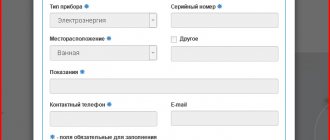Any project in such a responsible area as construction is a complex process, at each stage of which the necessary documentation is developed and maintained. From this article you will learn how the abbreviation PTO stands for. In addition, the structure of the department will be analyzed, its tasks will be listed and the key responsibilities of specialists will be indicated.
Area of responsibility of VET
The main goal of the department and its employees is to monitor all areas of production.
The specialist’s focus is on construction projects at various stages, including those already in operation (for example, in the case of work in the housing and communal services sector). To specify the responsibilities, each department must have a document “Job description of a technical equipment engineer”. We will not consider a sample of specific instructions, but we will provide general provisions in this article.
average salary
The final salary for an object is influenced by the engineer’s level of education, work experience and region of residence. Newcomers working in the provinces receive from 18,000 to 25,000 rubles. Employees with a good track record receive on average 40,000-50,000 rubles. Specialists with extensive experience and specialized knowledge receive up to 150,000 rubles.
The data is current as of October 2021 and taken from the Yandex Job service.
Portrait of a VET engineer
Taking into account the peculiarities of this or that area of work of a technical equipment engineer, the requirements for his qualifications are severe. A person who has received a higher education in a technical specialty or a secondary specialized education is entitled to occupy a position. It is quite acceptable to start a career with no experience at all, but serious projects will require specialized specialization and work experience in the chosen industry of at least 3-4 years. For example, in construction organizations, the job description of a construction technical engineering engineer requires a higher education in construction and at least one year of experience.
In the work of a technical equipment engineer, excellent knowledge of the specifics of work in the industry is important, since even small errors in the design or during the execution of work are extremely expensive. For example, experience in construction is not enough for promotion at an industrial enterprise, and experience in the energy sector is not enough to successfully supervise the construction of a large microdistrict.
Candidates for the vacancy of a specialist in the technical and technical department are selected by a senior manager, as a rule, this is the chief engineer or head of the department (if the company is small, then the general director). Despite the fact that almost every enterprise has such a specialist as a technical equipment engineer, the job description differs in different companies. Differences are due to the type of objects controlled, company structure and area of responsibility.
conclusions
Alexander
Ask a Question
The production and technical department is one of the most important departments of a construction enterprise, since it is here that most of the documentation required at each stage of construction of the facility is analyzed and completed. The VET is headed by a technical director, who at the same time can have the status of chief engineer in the organization. It follows that all employees of the department must be highly qualified professionals with higher education in their direct specialty. Compliance with this principle will increase the efficiency of the enterprise as a whole. I'll be glad to answer your questions!
Knowledge and skills
What information should a VET engineer know? The job description indicates that the specialist must be armed with both general knowledge and special knowledge. The general ones include the organizational structure of the enterprise, the main production business processes, legislation in the field of construction or public utilities, rules of labor protection, industrial and fire safety, the Labor Code of the Russian Federation. In addition, a VET engineer must have specific knowledge and successfully apply:
- knowledge of the norms and rules of work on sites;
- ability to draw up, adjust and accept design and estimate documentation, as well as contractual and business documents;
- rules for conducting work at the site;
- quality control methods;
- conditions for delivery of finished objects to the customer.
The PTO engineer must have information about the resources used, consumables, tools and finished products for the purpose of their possible replacement during the work process.
Requirements for candidates
An applicant for the position of VET engineer must meet the basic requirements:
- Have a high level of professional knowledge. It is important to be able to maintain all types of documentation, draw up plans and estimates, and know the principles of evaluating work performed.
- Understand the specifics of the work. It is necessary to understand the legislation, in particular the provisions of labor legislation.
- Be able to work with computer equipment. An engineer must be able to read indicators from instruments and check reporting documentation.
For an employee of a large enterprise, it is important to have the makings of a leader in order to be able to distribute responsibilities and monitor the timely completion of work.
Responsibilities in construction
The job description of a technical equipment engineer at a construction organization determines the list of specialist tasks. He:
- carries out technical supervision of how construction and installation work proceeds on site and objects;
- checks the scope of work completed and compliance with those drawings and design estimates that are approved and accepted for work;
- inspects compliance with building codes (SNIPs), labor protection requirements and standards, approved standards and technical specifications (TU);
- checks estimates, accounting and calculation of the cost of construction and installation work performed, including the required additional work or services;
- draws up schedules and production plans and makes adjustments thereto;
- checks estimates, calculations and contracts received from contractors and customers;
- takes part in the technical acceptance of construction or installation work performed at the site, checks compliance with the estimate, design, and interim solutions;
- draws up technical documentation after completion of work and acceptance of completed objects;
- Responsible for drawing up reports upon completion of work at the site in accordance with construction plans.
In addition, the document “Job description of a technical equipment engineer for a construction organization” reflects that he is actively involved in the coordination, development and approval of changes to design solutions, issues of selection of materials, and changes in structures.
If there is a delay or deterioration in the quality of construction and installation work, then together with related services he analyzes the reasons and takes measures to comply with the work production plan (WPP).
The structure of the TVET department and the organization as a whole.
The organizational structure is a conceptual model of the correct organization of work; coherence in the operational solution of certain tasks depends on it.
Each VET specialist can be conditionally classified into one of 3 categories:
- Group for preparing documents at the tender stage. The preparatory work before the conclusion of the contract rests on her shoulders.
- Estimate and contractual group (pricing department) The employees included in it draw up and analyze estimates, provide their transcripts to company managers, draw up and check contracts before signing, conduct and draw up factor analyzes and other financial documents.
- Production and technical group. They develop PPR, permitting and executive documentation, maintain and control the document flow from the beginning until the end of construction.
Job Description for VET Engineer in the Energy Industry
A technical equipment engineer in the energy sector performs the same duties as a given specialist in construction, but taking into account the fact that the object of control is electrical equipment, thermal and energy systems. What requirements does his job description contain?
A technical equipment (power) engineer is required to know the types and features of the operation of electrical equipment, be able to understand electrical circuits, and master the features of installing electrical equipment.
When selecting candidates, preference will be given to those who already have experience as an engineer in the energy industry or in the construction of electrical power facilities.
History of the development of the profession
The term "engineer" comes from the Latin "to give birth." Already in Ancient Rome and Ancient Egypt, builders managed to create unique structures, which for contemporaries were the embodiment of real magic, and for connoisseurs of art of the 21st century - historical monuments. Archimedes can be considered the founder of engineering. Thanks to his experimental experiments, builders received ready-made drawings of complex mechanisms and defensive structures that were erected around cities to protect them from catapult attacks.
The further development of engineering made it possible to create not just buildings, but convenient multifunctional complexes that take into account all the vital needs of a person.
In Rus', the development of engineering in the modern sense began under Peter the Great. Craftsmen imported from Germany supervised the construction of most buildings in St. Petersburg and helped create a full-fledged navy.
VET engineer interaction
Who does the technical maintenance engineer contact? The job description defines his responsibility to cooperate fruitfully within the framework of his activities with various responsible persons both within the company and externally. The VET engineer interacts on work issues with design institutes, customers of work, representatives of the general contractor or subcontractors. Within the organization, she communicates with management and related departments, and works in project teams.
Contact:
- with representatives of the estimate and contract department;
- with design engineers, power engineers;
- with the head of the department or chief engineer;
- with employees located at the sites of construction and installation work, namely foremen, site managers;
- with representatives of support services: financial department, occupational health and fire safety specialist.
Necessary personality qualities
To work as a VET engineer, a specialist must have the necessary personal qualities:
- sustained attention;
- pedantry;
- responsibility;
- analytical mind;
- willingness to fulfill customer wishes;
- ability to work in multitasking mode.
An engineer must be prepared for high levels of stress. Working on each new project will require the ability to quickly adapt to a new job description, since each work task has its own characteristics.
What is the responsibility of a technical maintenance engineer in housing and communal services?
The engineer’s area of responsibility includes both commissioned objects, residential buildings and communications within the territory, as well as new construction sites. The job description of a technical equipment engineer in housing and communal services outlines his responsibilities as follows.
- He is responsible for the operation of heating networks and heating points, controls the operation of housing facilities that are on the balance sheet of the housing and communal services.
- Participates in commissions to inspect the technical condition of buildings, acceptance of new and renovated facilities into operation.
- Interacts with design, supervisory, and heat supply organizations.
- Supervises the performance of work by contractors, takes part in the certification of objects included in the area of responsibility of the farm.
- Controls the maintenance of the database of general house metering devices.
Where to get education
To work on simple projects, a secondary specialized education is sufficient. But to gain access to complex, interesting projects, you need a higher education. Depending on the university you choose, you will need to pass entrance exams in:
- mathematics;
- physics;
- computer science;
- foreign language;
- chemistry.
Future engineers are trained in large technical universities:
- MSTU;
- MEPhI;
- SibGIU;
- NSAU;
- RUDN;
- REU.
The duration of training takes 4-6 years. The cost depends on the prestige of the educational institution and the features of the program; it varies from 25,000 rubles. up to 130,000 rub. per semester.
What rights does a production and technical department engineer have?
The department engineer has the right to give instructions and tasks to employees in order to fulfill their functional duties. He can also control all stages of construction and production work (timeliness of completion, compliance with norms and regulations, quality level). In addition, a specialist can at any moment demand from an enterprise or organization additional information and the necessary documentation to promptly carry out his work. A technical equipment engineer can seek help from other organizations and companies to resolve various issues that are within his competence.
If during the implementation of a project a specialist sees additional opportunities and ways to improve construction and installation work, he can submit all his ideas and proposals for consideration by the management of the enterprise (organization, company, etc.).
Level of responsibility for quality of work
The PTO engineer is responsible for:
- failure to perform (or dishonest performance) of one’s official duties;
- negligent attitude towards performing work;
- non-compliance with regulations (laws, instructions, orders, regulations and other similar regulations);
- disclosure of trade secrets and confidential information;
- violation of the labor code (internal regulations, discipline, safety precautions, etc.).
- monitoring the production process.
Career prospects
An employee without work experience cannot apply for the position of engineer. At first he works as an assistant to the project manager. Gradually gaining experience, the technical equipment engineer takes control of the development of the first object. If the work task is successfully completed, he can apply for the development of more expensive and complex objects. Working as an engineer does not imply moving up the career ladder; he can only develop in his field. There are 3 categories of VET Engineers:
- A specialist without work experience.
- A specialist with 3-5 years of experience.
- A specialist with 8 years of experience.
Employees who receive the highest category can become department heads. This profession is not suitable for people seeking a quick rise in their career. Only a person for whom his work is his main passion and calling can become an engineer.
Features of budgeting and technical methods of work
The responsibilities of an engineer include performing various calculations, as well as accepting completed construction and production work.
He coordinates the estimate and cost calculation of all necessary materials and equipment between the organization that prepared the project and the customer. In addition, the technical equipment engineer participates in the commission for commissioning of the finished facility. He is also responsible for ensuring that preliminary calculations correspond to actual costs. If during the implementation of the project there is a need to include additional financing or introduce any new types of work, the engineer justifies this and makes all the necessary calculations.









